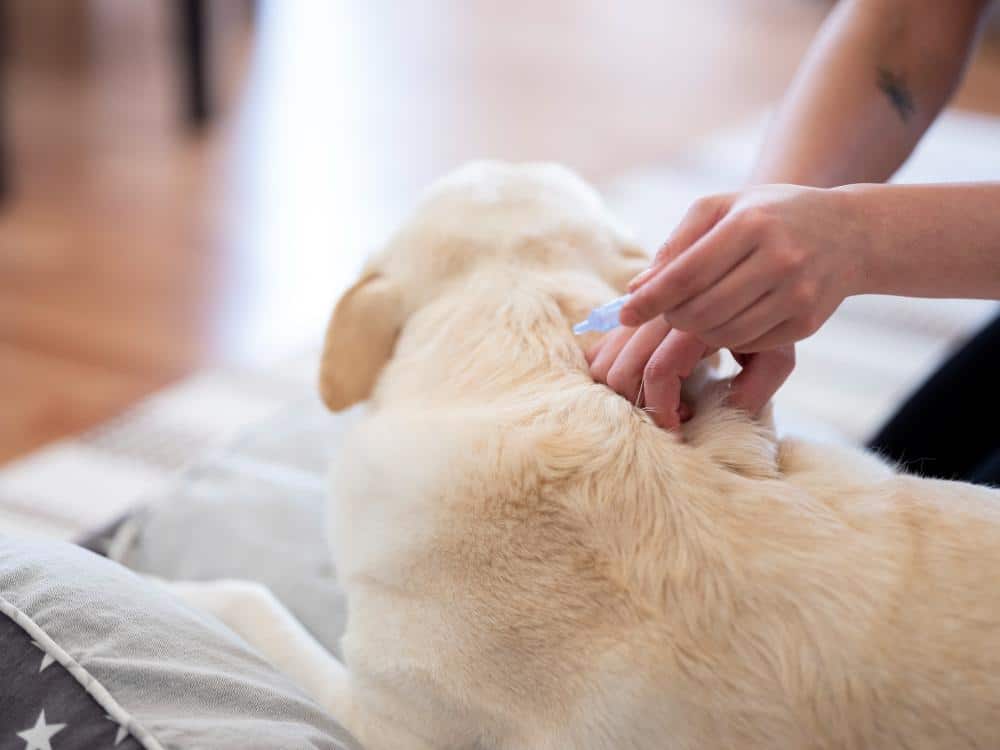Can Florida’s Humid Fall Weather Make My Pet Itchy?

Fall may bring a slight break from Florida’s summer heat, but if you’ve noticed your pet scratching more than usual, the season could be to blame. At Caring Paws Animal Hospital, we often see an increase in skin issues this time of year, and our humid fall weather is part of the reason.
From lingering parasites to rising allergens, autumn in Florida comes with its own set of pet health concerns. Let’s take a closer look at why your pet might be feeling itchy, and what you can do to help.
Humidity and Your Pet’s Skin
While we associate dry air with itchy skin in other parts of the country, Florida’s humid climate presents a different challenge. When humidity hangs in the air, your pet’s skin may become a breeding ground for bacteria and yeast, especially in areas like the ears, paws, and skin folds.
Moisture can also make existing conditions like allergies, hot spots, and fungal infections worse. If your dog or cat has been licking, chewing, or scratching excessively, don’t write it off as a quirky seasonal habit—it may be a sign of something more serious.
Looking for suggestions to help keep your pet comfortable in the humid Florida weather? Learn more in this blog post.
Fall Fleas in Florida: Still a Problem
Think fleas go away when summer ends? Think again. In Florida, flea season doesn’t stop with the school year. Fall can be prime time for flea activity thanks to warm, moist conditions that keep these parasites thriving.
Fleas don’t just cause itching. They can lead to:
- Flea allergy dermatitis (a severe allergic reaction to flea saliva)
- Skin infections from excessive scratching
- Tapeworm transmission
- Anemia, particularly in small or young animals
If your pet isn’t on a reliable flea prevention plan year-round, now’s the time to talk to your Odessa, FL, vet about the best options.
Check out this blog post to learn more about flea and tick prevention.
It’s Not Just Fleas: Other Fall Parasites
Florida’s mild fall weather also keeps other parasites active longer than in cooler states. That includes:
- Ticks – Still lurking in grasses, shrubs, and wooded areas.
- Mites – Microscopic pests that can cause mange or ear infections.
- Intestinal parasites – Pets can still pick these up from contaminated soil or water during fall outings.
To keep your furry friend healthy and itch-free, consistent pet parasite prevention is essential no matter the season.
Fall Allergens Are in the Air
Fall also means a shift in outdoor allergens. Pollen from ragweed, grasses, and mold spores can trigger allergic reactions in sensitive pets, especially dogs.
Signs of seasonal allergies may include:
- Excessive scratching or licking
- Red, inflamed skin
- Hair loss or scabbing
- Ear infections or head shaking
- Watery eyes or sneezing
If you’re noticing these symptoms and flea prevention is already in place, environmental allergies could be the culprit.
Tips To Help Soothe the Itch
There’s no one-size-fits-all solution when it comes to itchy pets, but there are steps you can take to reduce discomfort while identifying the underlying cause:
- Stay on top of parasite prevention: Use vet-recommended flea, tick, and heartworm preventives year-round.
- Dry thoroughly after outdoor activities or baths: Trapped moisture can contribute to skin infections.
- Limit exposure during peak allergy hours: Avoid grassy walks during early morning and evening when pollen levels are highest.
- Visit your vet: A professional diagnosis is the best way to get targeted relief for your pet.
- Bathe regularly (but not too often): Aim to bathe your dog every 4 to 6 weeks using a gentle, vet-approved shampoo, unless your veterinarian recommends a medicated shampoo or more frequent baths for a specific skin condition. Most cats don’t need regular baths, but if yours gets into something messy or has a skin condition, use a vet-approved shampoo and bathe only as needed. Always talk to your vet if you’re unsure.
If your pet’s scratching isn’t improving, don’t wait—early treatment can prevent a mild irritation from turning into a serious condition.
Give Your Pet Some Relief This Fall
The veterinarians and staff at Caring Paws Animal Hospital are here to help your pet enjoy the season itch-free. Whether it’s customizing a pet parasite prevention plan or addressing skin concerns head-on, our caring team is ready to help. Contact Caring Paws Animal Hospital at (813) 723‑7297 to schedule a preventive and wellness care appointment today.

